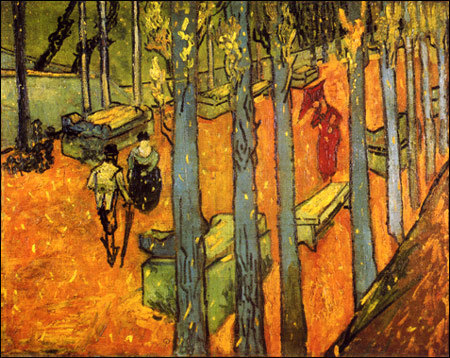Note: If you wish to receive, via e-mail, (1) my weekly newsletter or (2) daily copies of these posts, notify me at [email protected] and indicate which you would like. I promise not to share your e-mail address with anyone. To unsubscribe, send me a follow-up email.
Monday
It seems as if, overnight, the autumn leaves have started to come down in torrents and for no other reason that it’s time. (In other words, neither wind nor rain have been playing a role.) This gives me an excuse to share a simple but powerful Lucille Clifton poem.
In “the lesson of the falling leaves,” Clifton marvels at how, with little fanfare, leaves let go of the branches. There’s no clinging tightly to safety, and in that easy faith in the future, Clifton finds grace:
the leaves believe
such letting go is love
such love is faith
such faith is grace
such grace is god
i agree with the leaves
Letting go and venturing out into the unknown is a theme of Clifton’s. It shows up as well in “the blessings of the boats (at st. mary’s)” where she thinks of what it must have been like for English colonists to have set out for America in 1634. (The “blessing of the fleet” is celebrated every year to commemorate their landing in St Mary’s County, Maryland, where both Clifton and I taught for a number of years.) In her blessing, she asks that the sailors be carried out “beyond the face of fear”—and that they venture forth into the unknown with the same confidence as the leaves:
may the tide
that is entering even now
the lip of our understanding
carry you out
beyond the face of fear
may you kiss
the wind then turn from it
certain that it will
love your back may you
open your eyes to water
water waving forever
and may you in your innocence
sail through this to that
I note that, for years, this poem was read at our commencement as we looked over the St. Mary’s River, up which the colonists sailed to establish Maryland’s first colonial capital (St. Mary’s City). This sailing into the unknown also reminds me of the jazz pianist in James Baldwin’s “Sonny’s Blues” venturing out into the terrifying waters of artistic exploration.
In doing so, Sonny shows his cautious brother that there’s more to life than playing it safe. In the following key passage, Sonny’s jazz ensemble is welcomes him back following a stint in prison for heroin. Creole is group’s leader:
But as I began to watch Creole, I realized that it was Creole who held them all back. He had them on a short rein. Up there, keeping the beat with his whole body, wailing on the fiddle, with his eyes half closed, he was listening to everything, but he was listening to Sonny. He was having a dialogue with Sonny. He wanted Sonny to leave the shoreline and strike out for the deep water. He was Sonny’s witness that deep water and drowning were not the same thing–he had been there, and he knew. And he wanted Sonny to know. He was waiting for Sonny to do the things on the keys which would let Creole know that Sonny was in the water,
Deep water and drowning are not the same thing. And letting go is love.
